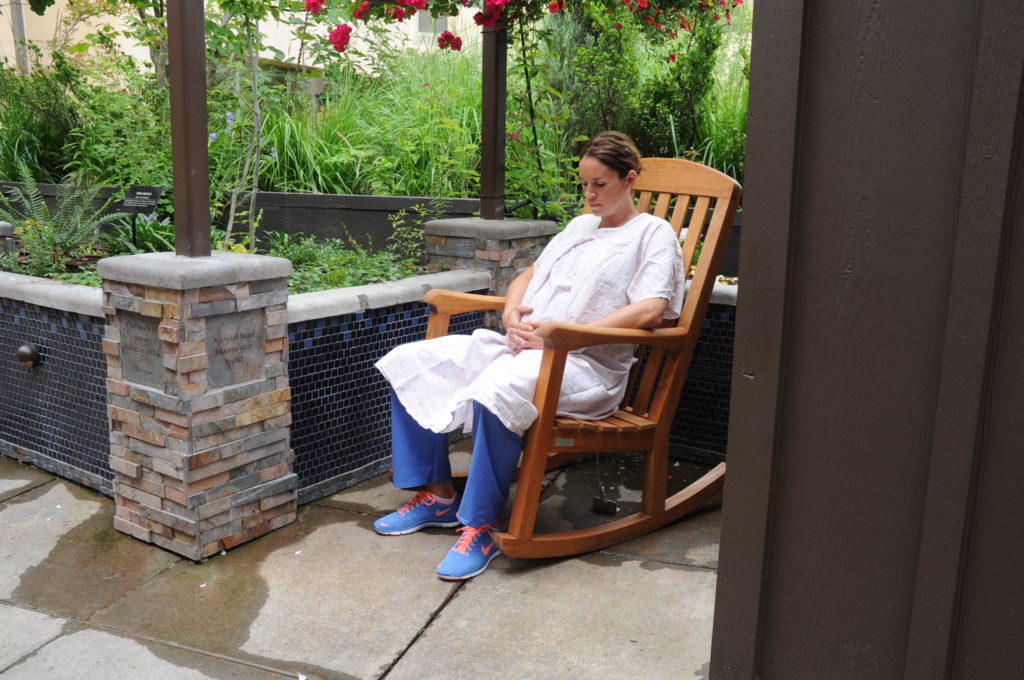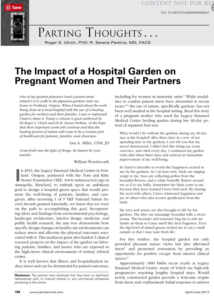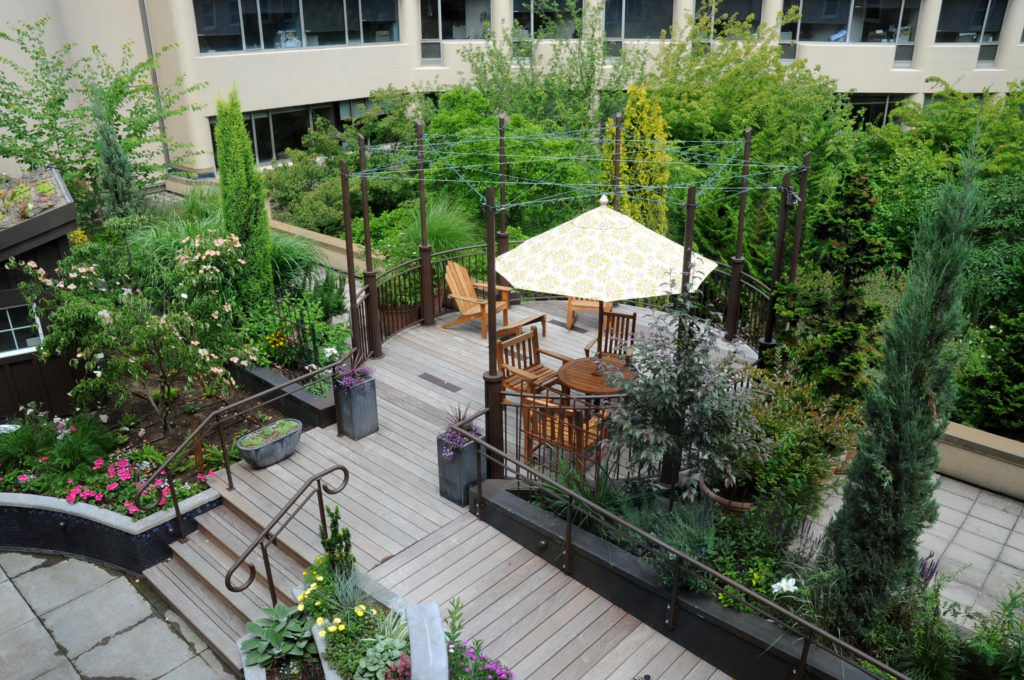
Located at the threshold of Legacy Emanuel Medical Center’s second floor Family Birth Center, is A Nature Place, a therapeutic green space where on any given day you’ll find laboring mothers rocking in chairs; newly minted siblings gathering with expanded families, surrounded by green.
Over the past four decades, researchers and doctors have been gaining a fuller understanding of the health and healing benefits nature provide us; benefits like rapid and substantial psychological and physiological recovery from anxiety and stress. And this has led to some forward-thinking medical institutions finding ways to incorporate nature into hospital setting.

This idea was something that excited us here at the TKF Foundation in 2012, when Legacy Health in Portland, Oregon applied for our Nature Sacred Awards program.
For the past four years, the site has doubled as a therapeutic garden and research site, where scientists and physicians have worked to better understand the role gardens can play in creating better experiences for laboring mothers, their families, and support systems.
Learnings from this project, a postpartum study, in particular, are the subject of an editorial recently published in the Journal of Perinatal and Neonatal Nursing and authored by team leaders Roger Ulrich, Ph.D., and Serene Perkins, MD, FACS.
Legacy’s horticultural therapist Teresia Hazen, who has coordinated the project, said at the outset, the team was eager to see laboring mothers – as well as their families – benefit from the well-documented stress-reducing benefits nature brings. Having noticed in recent years an uptick in interest among expectant mothers for less medicalized births, she wasn’t surprised at the amount of interest in the terrace garden since it was completed. The hospital, which incorporates a midwifery practice, has been a pioneer in the use of therapeutic gardens. And Hazen has worked decades with Legacy Health, integrating nature in a therapeutic capacity, into the hospital’s care.
Observing how A Nature Place has been used by expectant families, Hazen said when approached about using the garden, mothers had a strong positive impression of how the garden access could benefit them, and a strong desire for a calm retreat.
According to Hazen, while researchers noted that the mothers who visited the garden benefited from the experience, so too did those women who didn’t; simply knowing the space is there and available to them left them with a positive impression.
Researchers also discovered an eagerness among partners and other family members to use the space, offering all a place for respite and restoration. The fact is that spending time in a garden can affect us in positive ways without our even being aware of it. This, said Hazen, is “one the most profound pieces of my work.” (Research shows our mood and physiological health markers can improve even if we are not seeking improvement).
“When families visit their loved ones and are so stressed, they don’t even have to know why the garden is there to benefit. It can help with their coping.”

